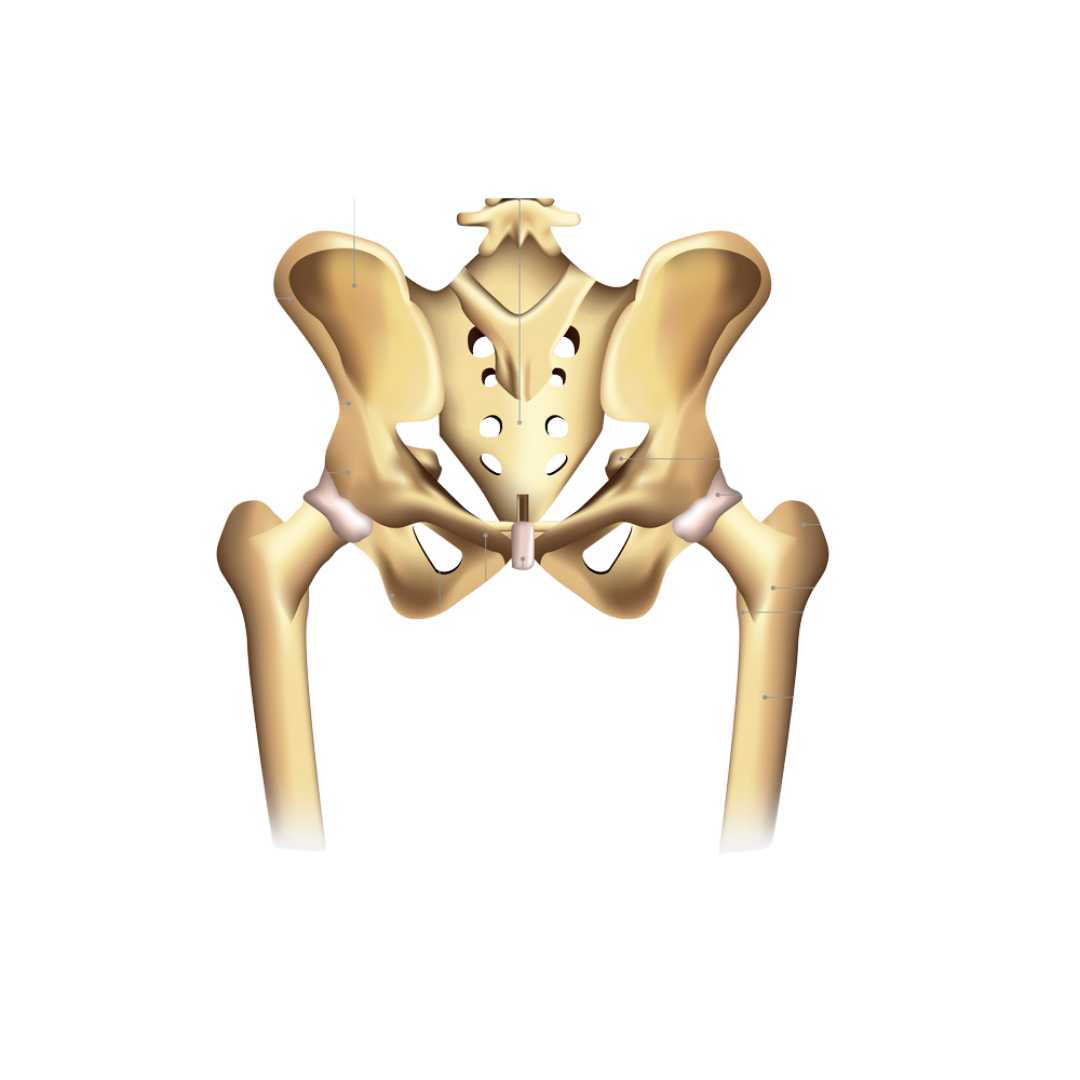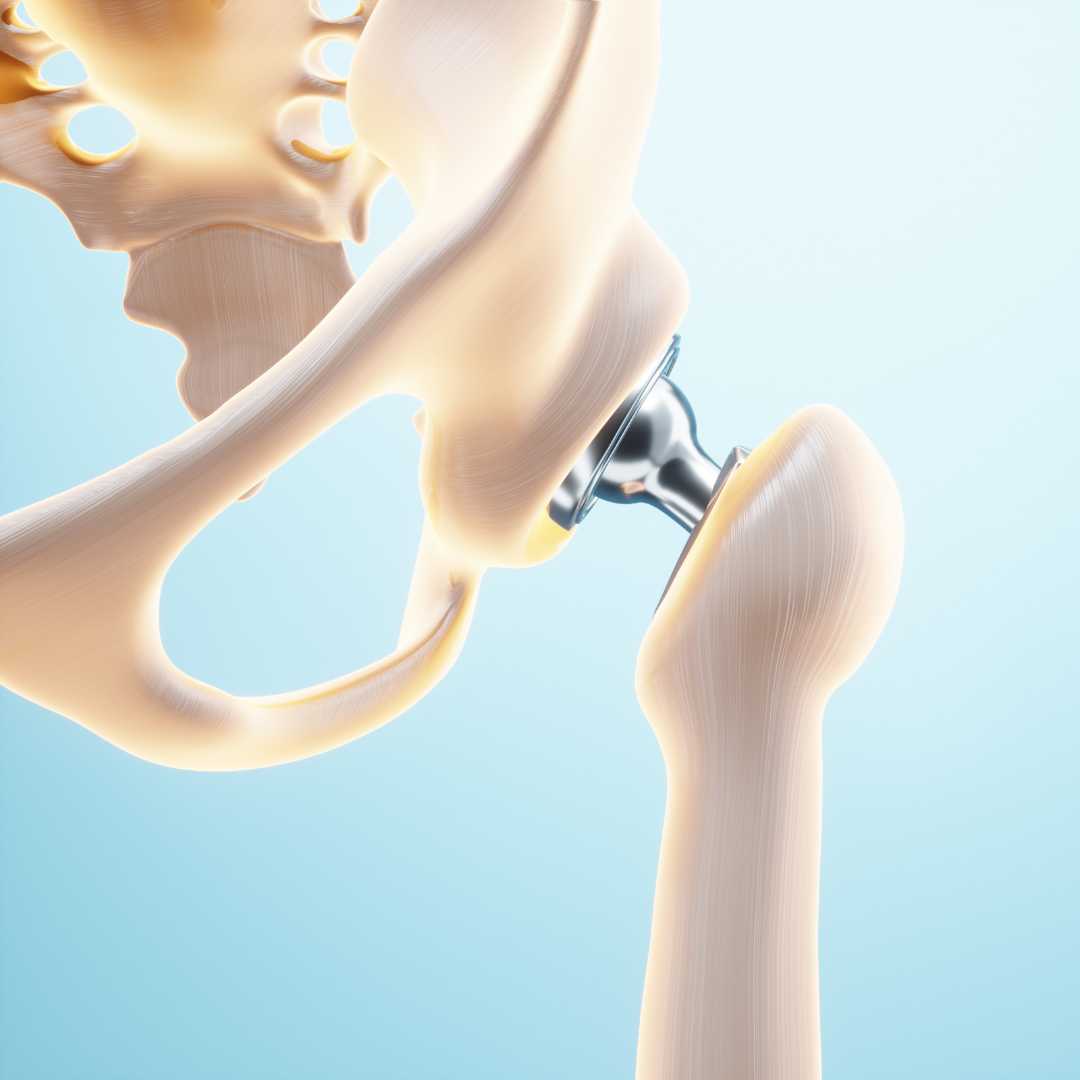Living with persistent hip pain can significantly impact your quality of life. Simple actions like walking, taking the stairs, or even standing up can become challenging and painful. This discomfort often stems from conditions like osteoarthritis, rheumatoid arthritis, or injuries such as hip fractures. When conservative treatments like medication or physical therapy don't provide enough relief, hip replacement surgery emerges as a powerful solution. It offers the potential to alleviate pain, restore mobility, and help you return to a more active lifestyle.
The question then becomes: where should you undergo this significant procedure? While high-quality medical care exists worldwide, the associated costs can differ greatly. This disparity has fueled the rise of medical tourism, with Turkey becoming a favored destination, especially for orthopedic surgeries like hip replacement.
What makes Turkey so appealing? It offers a compelling blend of highly skilled orthopedic surgeons, modern hospitals equipped with advanced technology, remarkably affordable prices compared to North America or Western Europe, and significantly shorter waiting times. If hip replacement is on your horizon, understanding the benefits and costs associated with treatment in Turkey is essential. This guide aims to clarify what the surgery involves, highlight Turkey's advantages, explore the factors that influence pricing, provide cost estimates in US dollars, and compare these costs with other countries.
Understanding Hip Replacement Surgery: What's Involved?
Before we discuss costs, let's clarify what hip replacement surgery entails. Medically known as total hip arthroplasty (THA), this procedure involves removing the damaged sections of your hip joint and replacing them with artificial parts, known as a prosthesis.
Think of your hip as a ball-and-socket joint. The 'ball' is the upper end of your thigh bone (femur), called the femoral head. The 'socket' is a depression in your pelvis known as the acetabulum. In a healthy hip, smooth cartilage covers these surfaces, enabling effortless and pain-free movement. However, conditions like arthritis can erode this cartilage, causing bones to grate against each other. This results in pain, stiffness, and limited motion.
During a typical total hip replacement surgery:
The surgeon removes the damaged femoral head (the ball). A metal stem is then inserted into the thigh bone, and a new ball (made of ceramic or metal) is attached to the top of the stem.
The damaged cartilage lining the socket (acetabulum) is removed. A new socket, usually made of metal, is implanted into the pelvis. It might be secured with screws or surgical cement.
A liner, often made of durable plastic (polyethylene), ceramic, or metal, is placed between the new ball and socket. This creates a smooth surface for fluid movement.
Variations of the procedure exist:
Partial Hip Replacement (Hemiarthroplasty): In this procedure, only the femoral head (the ball) is replaced. It's commonly performed for specific types of hip fractures, particularly in older patients.
Hip Resurfacing: Instead of removing the femoral head, the surgeon trims it and places a smooth metal cap over it. The socket is also replaced. This approach conserves more bone but is suitable only for certain, typically younger and more active, patients.
Revision Hip Replacement: This surgery is necessary when a previous hip replacement implant fails, loosens, or wears out over time. It's often more complex than the initial surgery.
Your surgeon will recommend the most appropriate type of surgery based on factors like your age, activity level, the specific hip condition, bone quality, and overall health. The operation generally lasts between one and two hours and is performed under either general anesthesia (where you are asleep) or spinal anesthesia (where the lower body is numbed).
The Turkish Advantage: Why Choose Turkey for Hip Surgery?
Turkey's reputation as a prime medical tourism hub, particularly for orthopedics, is well-earned. Several factors make it an attractive option for international patients seeking hip replacement:
Exceptional Affordability: Cost is a major driver. Hip replacement surgery in Turkey can be substantially less expensive – often saving patients 50-70% or more – compared to costs in the United States, Canada, the UK, and Western Europe. These lower prices stem from factors like lower operating costs and living expenses in Turkey, government initiatives supporting medical tourism, and favorable currency exchange rates, not from lower quality care.
High Standards of Medical Care: Don't let the lower prices suggest lower quality. Many Turkish hospitals, especially those serving international patients in major hubs like Istanbul, Ankara, Izmir, and Bursa, hold prestigious international accreditations, most notably from the Joint Commission International (JCI). JCI accreditation signifies adherence to strict global standards for quality, patient safety, and clinical outcomes. These facilities feature modern infrastructure, state-of-the-art diagnostic tools, and advanced surgical technologies, including robotic-assisted systems in some leading centers.
Skilled and Experienced Surgeons: Turkey boasts a large pool of highly qualified orthopedic surgeons. Many have received training in Europe or the United States, hold international board certifications, and possess extensive experience performing hip replacements. The high volume of procedures performed annually in Turkish centers contributes to their surgical proficiency and impressive success rates, frequently reported at 90-95% or higher for standard replacements.
Minimal Waiting Times: In countries with national health services, waiting lists for elective surgeries like hip replacement can stretch for months or even years. In Turkey, patients typically face much shorter waiting times. Surgery can often be scheduled within weeks of the initial consultation, allowing for quicker relief from pain and a faster return to normal activities.
Comprehensive Medical Tourism Packages: To simplify the process for international patients, many Turkish hospitals and medical travel facilitators offer all-inclusive packages. These often bundle the costs of the surgery, anesthesia, hospital stay, standard implant, surgeon's fees, basic pre-operative tests, medications during hospitalization, ground transportation (like airport transfers), accommodation assistance (including post-hospital recovery stays), and interpretation services. This creates a more predictable and manageable experience.
Cultural Experience: For many, combining necessary medical treatment with the chance to explore Turkey's rich history, vibrant culture, delicious cuisine, and scenic beauty is an appealing bonus.
What Influences the Cost of Hip Replacement in Turkey?
While Turkey offers excellent value, the final price tag for your hip replacement isn't fixed. Several elements can affect the cost:
Choice of Hospital and Location: Facilities in major metropolitan areas like Istanbul or Ankara, particularly those with JCI accreditation, international renown, and luxury patient amenities, generally have higher prices than smaller clinics or hospitals in other cities. These premium hospitals often provide access to the most advanced technologies and highly sought-after surgical teams.
Surgeon's Expertise: Orthopedic surgeons with extensive track records, specialized fellowship training (e.g., in complex revisions or minimally invasive techniques), international recognition, or academic positions might charge higher fees. This expertise often correlates with better outcomes and potentially fewer complications.
Type and Brand of Implant (Prosthesis): The materials used in the artificial hip joint are a significant cost factor. Implants can be made from various combinations of medical-grade materials like titanium alloys, cobalt-chromium, highly cross-linked polyethylene (durable plastic), and ceramics. Premium implants, those utilizing newer technologies, specific well-known international brands, or implants approved by bodies like the US FDA, will generally cost more than standard options. For example, opting for a ceramic-on-ceramic bearing surface might increase the cost compared to a standard metal-on-polyethylene one.
Surgical Procedure Type: The complexity dictates the cost. A standard primary total hip replacement will cost less than a partial replacement (hemiarthroplasty), hip resurfacing, or a revision surgery (replacing a previous implant). Bilateral replacement (both hips) will cost more than a single (unilateral) replacement, though usually not double the price. Minimally invasive or robotic-assisted techniques might also carry a higher price tag due to the specialized equipment and training required.
Duration of Hospitalization: Package deals typically include a set number of nights in the hospital (often 3 to 5). If your recovery requires a longer hospital stay due to medical reasons, you'll likely incur additional per-diem charges.
Package Inclusions and Exclusions: It's crucial to understand exactly what's covered in your quoted package price. Standard inclusions usually cover the core surgical costs, basic hospital stay, and standard implant. Potential extras that might not be included are extensive pre-operative diagnostics beyond routine tests, specific medications after discharge, extended physiotherapy sessions, private nursing care at your hotel, or costs associated with managing unforeseen complications.
Medical Travel Facilitator: Using a service like PlacidWay can streamline the process. Their coordination efforts might be built into the hospital's package price or involve a separate service fee. These services provide value by vetting providers, managing communication, and handling logistics.
Hip Replacement Costs in Turkey: What to Expect (USD)
The cost for hip replacement surgery in Turkey can vary based on the type of surgery and the location of the hospital. Below are some examples of the costs:
Procedure Type
Estimated Cost Range (USD)
Notes
Total Hip Replacement (THR) - Unilateral
$7,000 - $16,000
This is the most common type. Wide range reflects hospital, surgeon, and implant choices.
Partial Hip Replacement (Hemiarthroplasty)
$6,000 - $10,000
Generally less complex and thus often less expensive than THR.
Hip Resurfacing
$8,000 - $12,000
Less frequently performed; specific patient selection criteria apply.
Revision Hip Replacement
$9,000 - $21,500+
Complexity varies greatly depending on the reason for revision. Can be significantly higher.
Bilateral Hip Replacement (Both Hips)
$12,000 - $20,000+
Often priced advantageously compared to two separate unilateral surgeries.
Robotic-Assisted THR
$15,000 - $23,000+
Utilizes advanced technology for precision; typically incurs higher costs.
Key Points Regarding Costs:
All-Inclusive Packages: Many international patient departments offer packages within the $8,000 - $15,000 range for a standard single hip replacement. These often include:
Surgery (surgeon, anesthesia, OR fees)
Standard, high-quality hip implant
Hospital stay (e.g., 4-5 nights in a private room)
Basic pre-op tests (blood work, X-rays, ECG)
Medications during hospitalization
Airport-hotel-hospital transfers
Hotel accommodation support (variable number of days)
Interpreter services
Clarify Exclusions: Always ask what is not included. Typically, flights to/from Turkey, visa fees, non-standard pre-op tests, post-discharge medications, long-term physiotherapy, and treatment for unrelated medical issues or major complications are extra.
Personalized Quotes are Essential: These ranges are estimates. Obtain detailed, personalized quotes from several reputable providers based on your specific medical needs and imaging results.
How Turkey Compares Globally: A Cost Snapshot (USD)
The financial advantage of choosing Turkey becomes even clearer when comparing approximate average costs for a total hip replacement in other countries:
Country
Estimated Average Cost Range (USD)
Key Considerations
Turkey
$7,000 - $16,000
High quality, JCI accreditation common, packages
United States
$30,000 - $50,000+
Very high costs, quality varies, insurance dependent
United Kingdom
$22,000 - $25,000+ (Private)
High private cost, long NHS waits
India
$7,000 - $10,000+
Very affordable, quality varies by facility
Mexico
$10,000 - $16,000+
Popular for US patients, variable quality
Thailand
$12,000 - $15,000+
Strong medical tourism infrastructure, moderate cost
Spain
$16,000 - $30,000+
Higher cost within Europe
Germany
$20,000 - $35,000+
High quality, high cost
Export to Sheets
Note: These are approximate ranges and can vary significantly based on specific hospitals, cities, and individual patient factors.
This comparison highlights that Turkey offers prices competitive with other affordable destinations like India and Mexico, while providing substantial savings compared to the US, UK, and Western European countries, often within internationally accredited facilities.
Selecting the Best Hospital and Surgeon in Turkey
Choosing the right provider is crucial for a successful outcome. Here’s what to look for:
Accreditation: Prioritize hospitals holding international accreditation, especially JCI (Joint Commission International). This is a strong indicator of commitment to high standards of care and patient safety. Well-regarded hospital groups frequently mentioned for orthopedics include Acibadem Hospitals, Memorial Healthcare Group, Medical Park Hospitals, Medicana Hospitals, Anadolu Medical Center (affiliated with Johns Hopkins), and specialized centers like Turan Turan Health Group.
Surgeon Credentials: Investigate the orthopedic surgeon's background. Check their qualifications, years of practice, specialization in hip surgery (primary, revision, minimally invasive), the volume of hip replacements performed, affiliations, and patient testimonials if available. Many leading Turkish surgeons have international training and experience.
Technological Capabilities: Assess if the hospital utilizes modern surgical techniques (e.g., minimally invasive approaches, computer navigation, robotic assistance if desired) and has comprehensive diagnostic and rehabilitation facilities.
International Patient Services: Effective communication is key. Confirm that the hospital has a dedicated international patient department with English-speaking staff (or interpreters for your language) who can assist with logistics, appointments, and any concerns.
Transparency and Package Details: Compare quotes and package inclusions carefully. Ensure pricing is transparent and you understand potential additional costs.
Location: Factor in the convenience of travel to the city and the hospital's accessibility from the airport and your chosen accommodation.
A medical tourism facilitator like PlacidWay can be invaluable here, connecting you with pre-screened, reputable hospitals and experienced surgeons tailored to your specific needs.
Common Questions Answered (FAQs)
Here are answers to some frequently asked questions about hip replacement in Turkey:
How long should I plan to stay in Turkey?
A typical trip involves 3-5 days in the hospital plus another 10-15 days nearby for initial recovery, follow-up checks, and early physiotherapy. Plan for a total stay of roughly 2 to 4 weeks.
What are the success rates like in Turkey?
Leading Turkish hospitals with experienced orthopedic surgeons generally report high success rates for hip replacement, often 90-95% or better. Success typically means substantial pain relief, improved function, and high patient satisfaction.
Are the artificial hips used in Turkey good quality?
Yes, reputable Turkish hospitals use high-quality, durable implants made from materials like titanium, cobalt-chrome, advanced ceramics, and highly cross-linked polyethylene. These are often sourced from major international manufacturers and meet stringent EU (CE mark) or US (FDA) standards. You can discuss the specific implant type with your surgeon.
Is communication difficult due to language differences?
Major hospitals catering to international patients employ multilingual staff, including doctors and dedicated patient coordinators. English is commonly spoken, and interpreter services for many other languages are usually readily available, often included in treatment packages.
Is physical therapy included in the cost?
Basic physiotherapy instruction during your hospital stay is standard. Some comprehensive packages may include a limited number of outpatient sessions after discharge but before you travel home. However, long-term physiotherapy needed once you return to your home country is typically not included and needs to be arranged separately. Always verify the extent of included therapy.
Will my home insurance cover surgery in Turkey?
It's unlikely for most standard domestic insurance plans (like US Medicare/Medicaid or UK NHS) to cover elective procedures abroad. Some private or international health insurance policies might offer partial or full coverage, but you must confirm this directly with your provider. Given the significant cost savings, many patients opt to pay for the procedure out-of-pocket.
Ready to Take the Next Step? Connect with PlacidWay!
Exploring medical treatment abroad can seem complex, but expert guidance makes it easier. If chronic hip pain is limiting your life and you're considering the high-quality, cost-effective hip replacement options in Turkey, PlacidWay is ready to assist.
We collaborate with top JCI-accredited hospitals and renowned orthopedic surgeons across Turkey. Our team can help you obtain personalized treatment plans and quotes in USD, compare inclusions, understand the process, and connect with the best healthcare provider for your unique situation and budget. Don't let hip pain dictate your life any longer.
Curious About Your Options? Talk to PlacidWay Now! Let us help you find safe, effective, and affordable hip replacement solutions in Turkey. Reach out today for a free consultation and start your journey towards better mobility!





.png)






















.png)
.png)
.png)


Share this listing